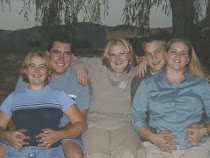i am using this tip for my hot tip Tuesday because i had moldy cheese i so wanted to use today but because of my daughters health i don't dare use anything of the sort without checking if it is ok first! so the cheese i had was ok according to the mayo clinic.

Moldy cheese: Is it unsafe to eat?
If a piece of cheese has mold on it, should I throw the cheese away or can I cut off the moldy part and eat the rest of it?
Moldy cheese: Is it unsafe to eat?
If a piece of cheese has mold on it, should I throw the cheese away or can I cut off the moldy part and eat the rest of it?
Mayo Clinic dietitian Katherine Zeratsky, R.D., L.D.,
Answer:
Answer:
The answer depends on the type of cheese. Molds are microscopic organisms that have thread-like roots that burrow into the foods they grow on. Most molds are harmless. Molds are even used to make some kinds of cheese, such as Roquefort, Gorgonzola, brie and Camembert. These molds are safe to eat.
But mold on cheese that's not part of the manufacturing process can also harbor harmful bacteria, such as listeria, brucella, salmonella and E. coli. With hard and semisoft cheese, you can cut away the moldy part and eat the rest of the cheese. But soft cheeses should be discarded.
Moldy cheese? What to do
But mold on cheese that's not part of the manufacturing process can also harbor harmful bacteria, such as listeria, brucella, salmonella and E. coli. With hard and semisoft cheese, you can cut away the moldy part and eat the rest of the cheese. But soft cheeses should be discarded.
Moldy cheese? What to do
Type of cheese Examples Handling
**Hard Cheddar, Colby, Swiss, Parmesan, Romano, Gruyere
~~Safe to eat if the mold is removed. Cut off at least one inch around and below the mold spot. Keep the knife out of the mold itself so that it doesn't cross-contaminate other parts of the cheese. Cover the cheese in fresh wrap.
**Semisoft American, Asiago, baby Swiss, Monterey Jack, mozzarella, Muenster, Gorgonzola
~~ Safe to eat if the mold is removed. Cut off at least one inch around and below the mold spot. Keep the knife out of the mold itself so that it doesn't cross-contaminate other parts of the cheese. Cover the cheese in fresh wrap.
**Soft Brie, blue cheese, Camembert, cottage cheese, Neufchatel, feta, ricotta, shredded and sliced cheeses
~~Discard the cheese.
Source: U.S. Department of Agriculture, 2006
To prevent mold growth on cheese, follow these tips:
Keep cheese and cheese dishes covered with plastic wrap.
Always refrigerate cheese.
To prevent mold growth on cheese, follow these tips:
Keep cheese and cheese dishes covered with plastic wrap.
Always refrigerate cheese.
Don't allow cheese to sit at room temperature for longer than two hours.
Also, don't eat cheese made from unpasteurized (raw) milk. Raw milk and cheeses may contain harmful bacteria and aren't safe to eat, drink or use in cooking.






Tuesday, February 03, 2009 4:48:00 PM
Hi Gramee. I love the Gramee and Grumpy. ha ha ha What a cool blog. Just wanted to stop by and say thanks for following me. You totally made my day.
Tuesday, February 03, 2009 6:03:00 PM
What a great tip (as usual). I would always throw the cheese out no matter what kind. This was very helpful information!!
Tuesday, February 03, 2009 6:40:00 PM
That was really helpful! My kids and hubby will eat it if I cut it out but I can't do it. I'm just repulsed.
Tuesday, February 03, 2009 7:18:00 PM
fantastic! Thank you for sharing this!!!
Tuesday, February 03, 2009 7:56:00 PM
Another great tip. I always cut it off, I hate to throw out food!
Tuesday, February 03, 2009 9:08:00 PM
That's for the great tips. I love cheese - all sorts.
I'm so sorry to hear about your daughter's loss - my prayers are with you and your family.
Take care - Kellan